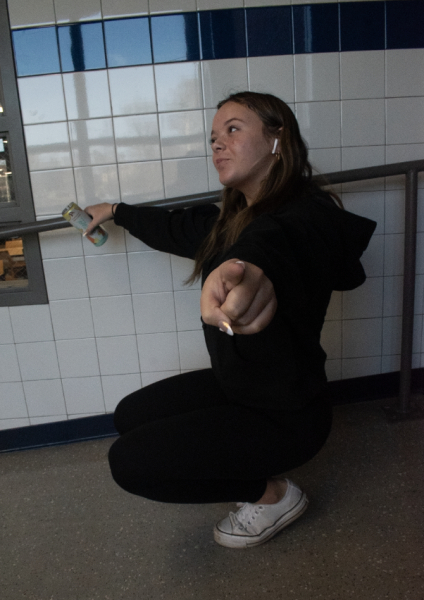Caffeine is a natural, white, organic alkaloid that can be found in numerous plants. It was found natively in South America, Africa, and East Asia. It is a drug that stimulates your brain and nervous system, and can have different effects based on the individual and their consumption habits.
While caffeine started off as tea, it eventually expanded into coffee, energy drinks, sodas, and various other forms that we see today. However, many don’t realize the effects caffeine holds in our everyday lives.
Guidance Administrative Assistant Julie Sarakatsannis said: “I drink one caffeinated cup of tea a day, but I am unable to drink it after 5pm or I would not be able to sleep. I wouldn’t say I’m dependent on it but it definitely helps me stay awake, I try not to drink it on the weekends to get a break and not have to depend on it.”
Freshman Cooper Benke said: “I drink caffeine on the weekends for football and baseball.”
Kids start drinking caffeine at a fairly young age, even though the preferred age for energy drinks is 18. Energy drinks can contain over 200 mg of caffeine depending on the brand and size. The age restriction is required on labels because caffeine can stunt your growth and can cause heart palpitations, upset stomach, uncontrollable shaking, and detrimental effects on mental health.
In September of 2022, a UPenn student Sarah Katz tragically died due to cardiac arrest from consuming a charged lemonade from Panera. The organization was found at fault in a lawsuit as they failed to advertise that it was a caffeinated drink. Furthermore, she had long QT syndrome which caused chaotic heartbeats that led to her death.
Many people have said that when trying to stop drinking caffeine, they experience headaches or moodiness.
Science teacher Andrea Higgins said: “Me and my husband gave up caffeine for lent and I had no symptoms from my coffee but he drinks soda and he got a headache from it.”
Caffeine can impact everybody differently based on the kind of caffeine you choose to drink. For example, soda contains both sugar and caffeine, while black coffee only contains caffeine.
However, many people still add creamer and sugar in their coffee. An energy drink contains around 200 mg of caffeine which is the equivalent to 10 coke cans.
A student stalking up her energy drinks for the long beach days!
Ingesting a lot of caffeine everyday can create a detrimental habit, depending on it to get through your day.




